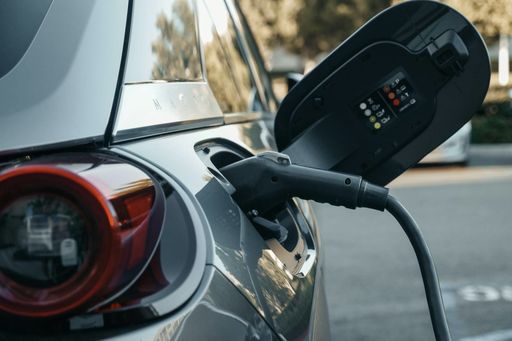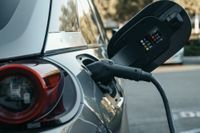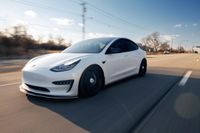Electric Cars: The Upending of America's Automotive Industry
The rise of electric cars is transforming the automotive industry and redefining what a car means.

The Rise of Electric Cars
Electric cars are already revolutionizing the automotive industry in America. In 2023, a record number of battery-powered vehicles were sold, totaling 1.44 million, which is equivalent to the number sold from 2016 to 2021 combined. This surge in sales signifies a major shift towards a post-gas era. Gil Tal, the director of the Electric Vehicle Research Center at UC Davis, notes that this is the year electric vehicles have transitioned from experiments to mature vehicles.
The dominance of Tesla in the EV market is now being challenged, as more car manufacturers are entering the electric car market. EVs are becoming increasingly more accessible and affordable for the general public, with a wide range of makes and models available. The Hyundai Ioniq 6, for example, offers a range of 360 miles on a single charge for $40,000. This marks a significant improvement from previous EV models, such as the Nissan Leaf, which had a much shorter range at a similar price point.
While the environmental benefits of electric cars are well-known, their transformation goes beyond being greener vehicles. Electric cars are essentially computers on wheels, as they rely heavily on software to function. Software updates can be easily implemented over Wi-Fi, enhancing the performance and capabilities of EVs. These vehicles offer a new level of connectivity, allowing passengers to use the car's infotainment system for various activities, such as video streaming and work meetings.
The Transition to Electric Vehicles
The shift to electric vehicles has led to significant changes within the automotive industry. Traditional car manufacturers are now faced with the challenge of transitioning from producing internal combustion engines to manufacturing lithium-ion batteries and developing software for EVs. This requires hiring an entirely new set of skills, including software engineers and networking experts.
The shift to EVs also raises questions about job losses and employment in the automotive industry. While some job cuts have already occurred, the transition is still ongoing. Car dealerships, in particular, are facing challenges as EV manufacturers like Tesla and Rivian sell directly to consumers, bypassing traditional dealerships. Additionally, EVs require less maintenance compared to gas vehicles, which could impact dealerships' profitability. The transition to EVs is not only a technological shift but also an economic and employment transformation.
Despite the growth of EVs, there are still obstacles to widespread adoption. Electric cars remain relatively expensive, and the availability of public charging stations is limited. Furthermore, the political landscape surrounding EVs introduces uncertainties, with potential hindrances to their growth from political figures. However, the transition to electric vehicles is unstoppable, with experts projecting continued growth in EV sales in the coming years.
The Future of Electric Cars
The future of electric cars looks promising, with projections of 1.9 million EV sales in the United States next year. Car manufacturers are launching new models with innovative features, catering to various consumer preferences. Despite some hype surrounding certain features, such as talking to a car's infotainment screen through a chatbot, the focus remains on improving performance, affordability, and accessibility.
However, challenges still exist, including the dominance of gas-powered vehicles. Even with an increase in EV sales, it will take time for electric cars to replace the majority of gas vehicles on the road. Issues such as the availability and speed of public charging stations, the overall cost of EVs, and political opposition pose obstacles to the widespread adoption of electric cars. Nonetheless, the transition to electric vehicles is accelerating, and the automotive industry is adapting to this new frontier.


